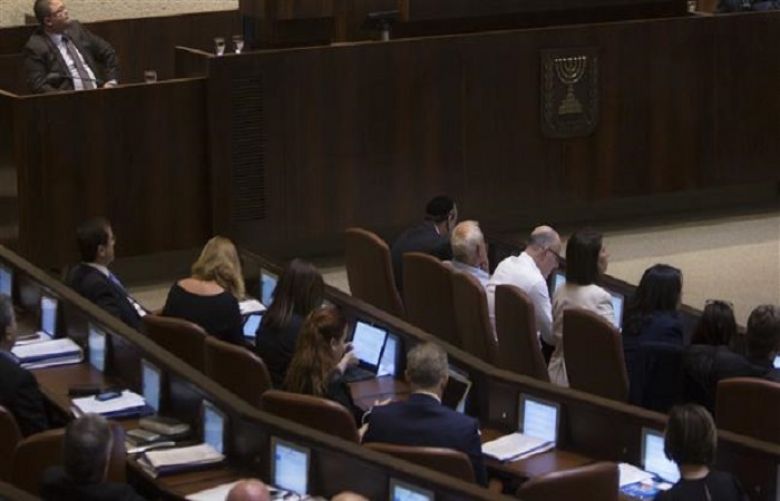The Israeli lawmakers have approved a hugely-controversial bill legalizing some 4,000 settler units built on private Palestinian land in the occupied West Bank, in the first of three readings needed to turn it into law.
On Wednesday, 57 members of the Knesset voted to approve the draft legislation in its first reading, while 51 opposed it, AFP reported.
The legislature had lent its initial approval to a revised version of the bill on Monday. The revised version had just had one settler home removed from the text. The bill has been forwarded to the parliament by Israeli Prime Minister Benjamin Netanyahu’s Likud party.
More than half a million Israelis live in over 230 illegal settlements built since the 1967 Israeli occupation of the West Bank and East Jerusalem al-Quds, another Palestinian territory.
The Palestinian Authority wants the West Bank as part of a future independent Palestinians state, with East al-Quds as its capital.
Built on occupied land, the settlements are internationally condemned as illegal and equal to land grab.
The United States, Israel’s oldest and strongest ally, Germany, the country least critical among its fellow European nations of Tel Aviv, United Nations officials, and the European Union have voiced strong criticism of the bill.
They have warned that signing off on the bill would deliver a body blow to the already-tattered prospects of the Palestinian-Israeli conflict’s resolution. Previous talks between the two sides have invariably foundered on Tel Aviv’s insistence on expanding the settlements.
'Most dangerous Israeli law'
A German Foreign Ministry spokesman told a regular government news conference, "We're extremely concerned about this development and have noted with consternation statements made by Israeli government officials during this debate.”
"Such a bill violates international law," he said.
Walid Assaf, the Palestinian minister responsible for monitoring the Israeli settlements, has, meanwhile, called the bill "the most dangerous law issued by Israel since 1967."
However, asked whether Germany and the European Union should punish Israel with economic or diplomatic sanctions, the spokesman said, "We don't think that sanctions would be the right path in this case to make headway in the Middle East peace process."
US State Department spokesman Mark Toner also said Tuesday, "We hope that it does not become law."







